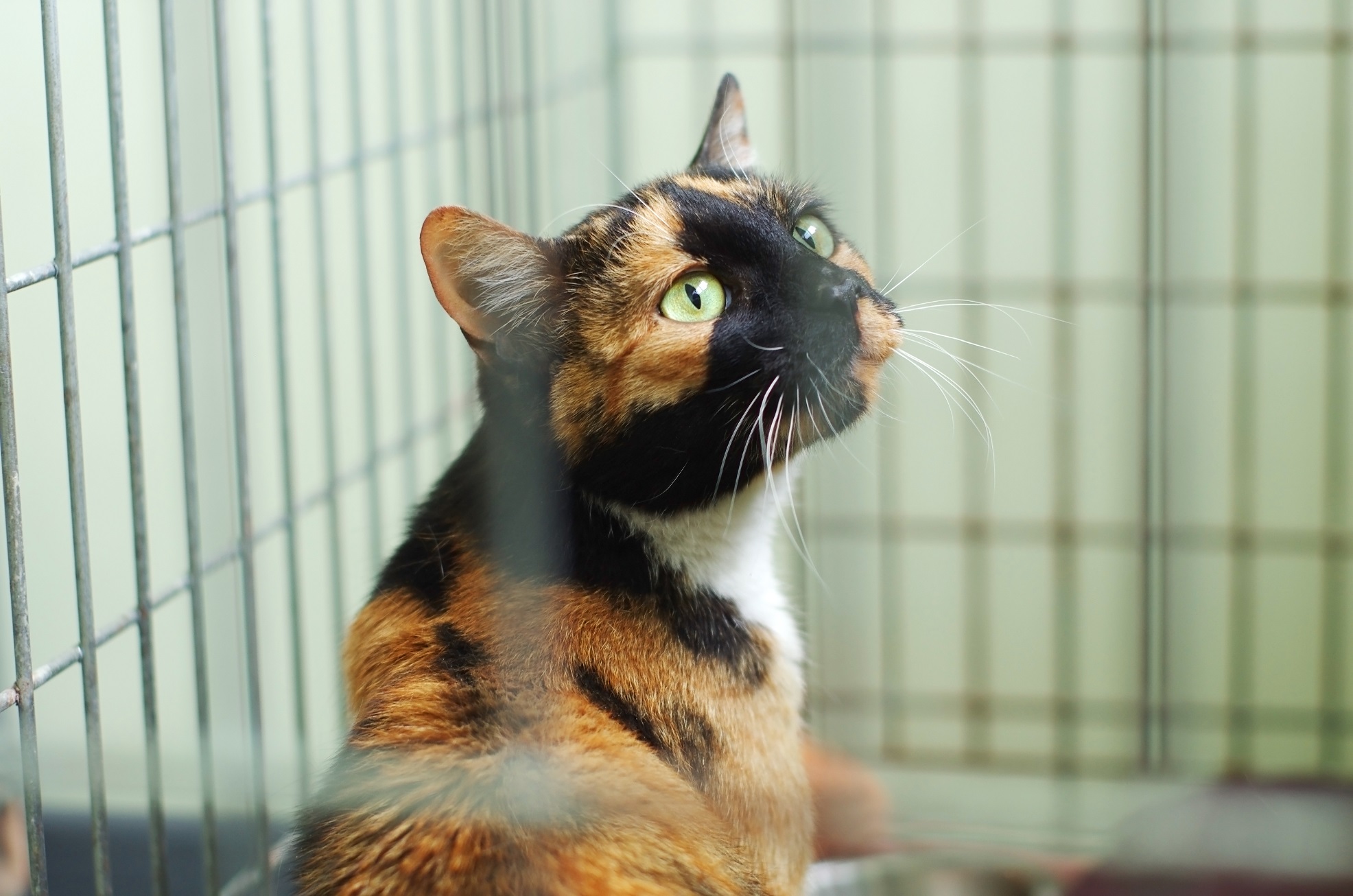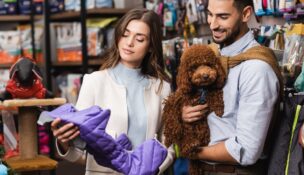Giving Back: There’s Value in Strategic Partnerships With Rescues, Shelters
Glenn Polyn//February 1, 2022//
Giving Back: There’s Value in Strategic Partnerships With Rescues, Shelters
Glenn Polyn //February 1, 2022//
As a rescue-group president, I know firsthand the benefits our organization receives when we partner with local retailers. However, I wanted to learn more about why retailers choose to partner with shelters and rescues and how it benefits their businesses.
Émilie Charette-Lemieux is the owner of Ta ib, a one-of-a-kind collection of dog accessories inspired by the arts and crafts of the Mayan civilization.
“I own two rescue dogs myself and I’m so grateful to have them in my life,” she said. “I adopted my first dog, Matheo, about nine years ago. He was a stray dog and I wanted him to have the same quality of life that other dogs experience with their families. So, I adopted him, and he’s been a part of our family ever since. I adopted my second furry friend, Copito (Spanish for snowflake), while living in Playa del Carmen, Mexico. It feels good to help shelters and rescues, as well as knowing that I’m helping to make a difference.”
Pattie Zeller, is the owner and pack leader of Animal Connection All Natural Store for Pets, a 21-year old business located in Charlottesville, Virginia.
“We’ve been involved with local and regional pet rescues since our store opened in 2001. We believe that giving back to the community is what sets us apart from many of the big box stores,” she explained. “It builds relationships and creates exposure that can’t be bought by paid advertising. We’ve been fortunate in our business that we have the means to give back with either financial or volunteer support or with the ‘buying power’ we’ve developed with our pet food distributors and suppliers.”
For Alison Schwartz, general manager of All Pets Considered, a Greensboro, North Carolina-area pet supply store with two locations, a relationship with rescues was a natural extension of her own involvement in rescue.
“Our store has always promoted pet adoptions with rescue groups. I joined the team in 2008 and with my rescue background I have deepened our relationships with the local groups. I have always had a passion for rescue, having done dachshund rescue since 2001. I started my own dachshund rescue organization in 2019, Doxie By Proxy Rescue.”
Frank Frattini is the CEO of The Hungry Puppy, a pet food and supply retailer in Farmingdale, New Jersey, that also boasts a dog park and playground on their premises that’s available to the community as well as an on-site training center and veterinary clinic.
“First is the love for the animals in their care,” said Frattini. “These rescue groups are non-profit organizations and are integral to our community for the welfare of these animals that may otherwise be euthanized.”
Partnership Benefits
Each of the business owners I spoke with said that the relationship between a rescue and a retailer has the potential to benefit both parties immensely. Frattini said it’s been good for business to support shelters in finding forever homes for pets and Charette-Lemieux agreed saying that by partnering with shelters and rescues “we both win because word gets out about animals and animal welfare groups in need and more pet owners learn about my business.”
She added that cross promotion of each other benefits both parties by reaching a wider audience of animal lovers. Schwartz echoed Charette-Lemieux and said, “Because of our support of rescue organizations in our community, they send adopters to us and shop with us, as well. I think other members of our community also see our support and in turn support our stores.”
Zeller added that media exposure and marketing opportunities are added benefits of her store’s involvement with rescues.
“The media knows we are active in helping the community and call on us frequently for events or to comment on stories about adoption, which gives us great exposure that advertising dollars can’t buy,” she noted. “More specifically, we practice ‘cause marketing’ with the rescue groups we support. For example, we were most recently involved with an annual Critter Ball, one of the SPCA’s biggest grossing annual events supported by their highest-level donors. We donated our time to produce the event and also donated gift wrapped $25 Animal Connection gift certificates which were given to every attendee at the dinner/dance,” Zeller said. As a result, her store was able to have their name in front of a mailing list of over 6,000 pet owners and over 400 high level donors and supporters.
Relationship Models
As Ta ib is a small, online-based business, Charette-Lemieux said her company gives back to rescues by donating 10 percent of its proceeds to animal charities. She added that they also regularly partner with local shelters to feature photos of dogs that are available for adoption in their product shots.
“We then donate these photos to the shelters so that they may use them in their adoption profiles and hopefully help these animals find loving homes,” said Charette-Lemieux.
Zeller hosts a weekly show, “What’s Barking Local,” which airs on Facebook and is available on Spotify, iTunes podcast and online. She invites the local SPCA’s director to spotlight a selection of adoptable dogs and cats, upcoming events, fundraising opportunities and to discuss what’s going on at the shelter.
“Because my weekly show reaches over 250,000 viewers in central Virginia per episode, this is an incredible exposure opportunity for the SPCA and it positions my store as a leader in supporting the nonprofit pet community,” she said.
“At our new location, we acquired a storefront patio with a fountain, wet bar, grill and covered sidewalk, which is perfect to host rescue groups. We give each adoption event a theme, like a summer Tiki Party, football season Pep Rally, Photos with Santa, Easter Egg Hunt and more,” Zeller added.
These events, according to Zeller, bring a lot of attention to the rescue group and pets at the events usually end up adopted or finding foster homes. She noted that they always get the media involved, which brings positive PR to the store and cements their position as a community leader.
Frattini’s partnership model includes a combination of events throughout the year as well as product donations. The store also offers its facilities to various rescue groups for fundraisers and adoption events throughout the year and typically raises between $5,000 and $10,000 per year for the groups. The store also offers a round up program whereby customers can increase the amount of their purchase to the nearest dollar with those proceeds going to the rescue groups.
“We are also in the process of allowing customers to give tribute to their pets either in remembrance or for accomplishments achieved by their pet on our large electronic LED sign outside our store on the highway. This is offered to folks for a small donation to the rescue groups we work with,” said Frattini.
Schwartz said her store also host two annual adoption fairs, Adopt-A-Palooza in May and Boo Bash in October, as well as many other activities including a weekly Pet of the Week segment on a local radio station featuring local rescue organizations, a monthly Rabies Vaccine Clinic fundraiser for the SPCA, a Pup-Up shop at their local mall in the adoption fair store for our local shelter where 100 percent of the proceeds from the sales at the store are donated to the shelter.
Communication is Key
Although most of the businesses I spoke with didn’t have a formal, written contract with their rescue partners, all agreed clear communication was important to a successful relationship.
“We always meet with the rescue groups and agree on what our role is to be in their event (or our event) and make certain we all know what is expected from each other,” said Zeller. “We put this in writing, so everyone is on the same page. We negotiate a reciprocal agreement. In exchange for our support and involvement, we ask for the rescue group to promote and acknowledge our store in their print and online social media channels. This can be tricky at times for an independent retailer, because some of the nonprofits have specific arrangements with big box chains that provide them with large amounts of pet food, supplies or monetary support. But if we can get exposure on their social media or their newsletters or print media that gets our name out there.”
Here are some additional tips for success from Zeller.
Gift Certificates Versus Gift Baskets: We always give gift certificates, sometimes even multiple certificates, for an event. A gift basket reaches one person who may enjoy the contents, but it might not get them to shop with you. When you give a gift certificate, it brings a customer into your store. Your store is not losing any money until someone spends the certificate, and then it’s only half the amount of your certificate out of your store’s pocket.
Adoption or Fundraising Events: Make certain everyone knows what to expect from your level of participation and theirs. Negotiate cross promotion on as many media channels as possible. Make sure your logo is on all social media, print media and prominently displayed at the event. Our business cards have a gift card on the back. We introduce ourselves to attendees and pass those cards around at every event.
Public Rations/Social Media: Always let your local media know what you’re doing. It’s free advertising to your community. Share it up on social media, tag the rescue group and share it on your channels and theirs. Share “behind the scenes” during preparation, during and do a “wrap up” especially if you have a big donation check to present to the rescue group.
Amy P. Castro, MA, is a business, leadership and communication expert, author and speaker who helps organizations develop leaders and build amazing teams one person at a time. She works with pet industry professionals who want to grow their loyal customer base by building a “Best in Show” team that can deliver a 5-Star Customer Experience. Amy is also the president of Starlight Outreach and Rescue, a nonprofit rescue in the Houston, Texas, area, and she has personally fostered more than 1,000 shelter pets.



















